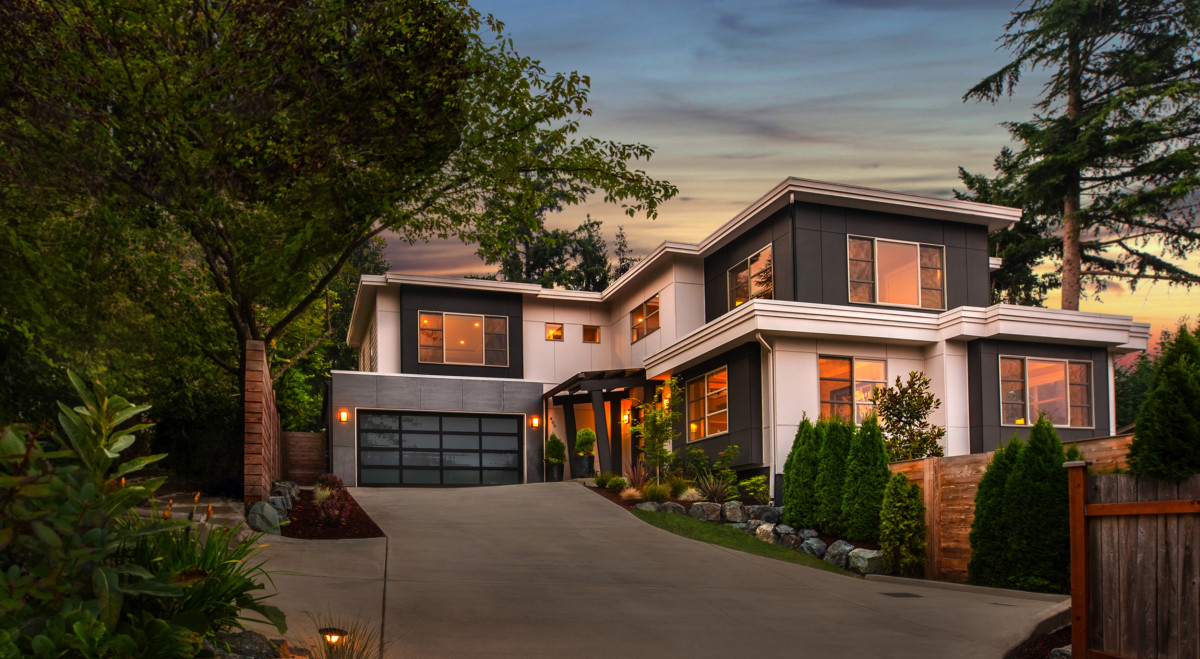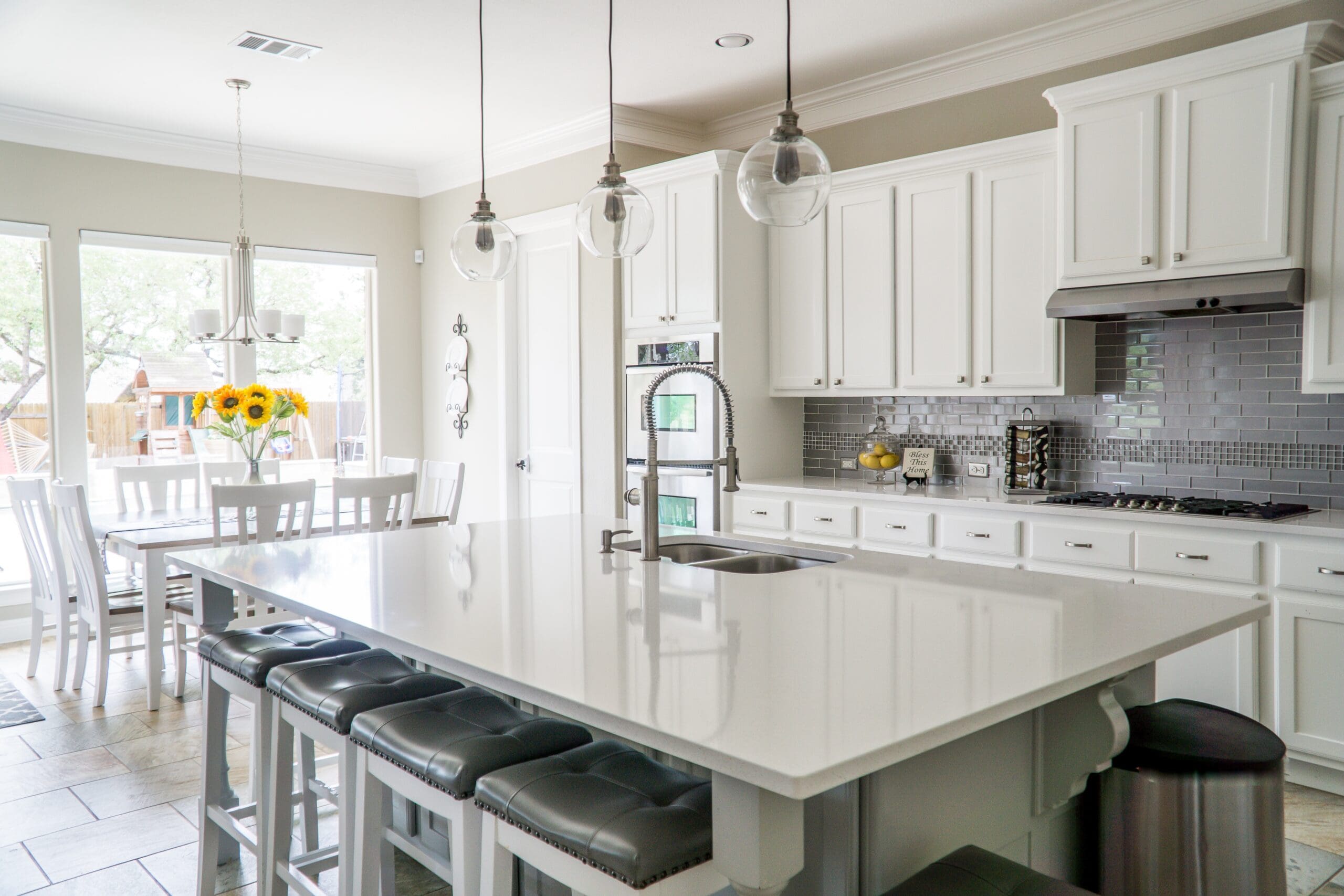Buying your first home can feel overwhelming, especially when you’re not sure what to expect. It’s a major investment, and there’s a lot to consider along the way. Asking the right questions early on can help you feel more confident, informed, and prepared at every step.
To guide you through the process, this Redfin article will provide you with 70 essential questions to ask when buying a house — organized by each stage of the homebuying journey.
Questions to ask when buying a house
- Before you begin your homebuying journey
- Choosing a real estate agent
- During your home search and home tours
- Submitting your offer and closing

10 questions to ask before you begin your homebuying journey
Before you start house hunting, think through your goals for homeownership. Why do you want to buy a house? What is your budget, and how much can you afford? Use these questions to guide you before getting started in the homebuying process.
- Do you want to earn equity and build wealth by owning a house?
- Do you expect you might need more space for a future family?
- Do you have a pet or see one in your future and you want a backyard?
- Do you want to live in a quiet, established area or somewhere more lively?
- Do you enjoy yard work or gardening? How much backyard space do you require?
- Have you considered the local schools and neighborhoods?
- Is it essential for you to live close to your work? Or, is a commute ok?
- Have you narrowed down a range of purchase prices you can afford?
- How much money do you need for a down payment?
- Are you pre-approved for a mortgage?
When house hunting, it’s easy to overlook key questions—like whether a condo allows pets or if a trendy neighborhood will still meet your needs in a few years. Thinking ahead about your lifestyle and priorities can help narrow your search. Also, keep your mortgage pre-approval current. It confirms you’re a serious buyer and, with recent rate drops, updating it could boost your buying power in a competitive market.
7 questions to ask when you interview agents
Reaching out to the agent on a for-sale sign isn’t always in your best interest as a buyer. Having your own agent ensures someone is representing you—researching the home, answering your questions, and negotiating on your behalf.
To find the right fit, it’s a good idea to interview at least three agents, ideally those recommended by trusted sources or with strong local reviews. Here are key questions to help you choose the right agent:
- How long have you been a real estate agent?
- What kind of experience do you have in this specific market/area?
- Do you usually work with buyers or sellers?
- How do you usually communicate with clients? What should I expect for response time?
- How will you help me search for homes?
- What days and times are you typically available for showings?
- How will you ensure transparency about any issues you see with a house?
When you set your expectations for communication, home tours, and other information you count on your agent to provide, you have a good chance to establish a productive relationship from the start – which will help you through your homebuying journey.

41 questions to ask during your home search
This is an extensive list, and not every question applies to every situation. For example, if your goal is to purchase a single-family home, questions relating to condominiums don’t apply. However, this list of questions to ask when touring a house should give you an excellent start in making well-informed decisions when buying your first home.
Costs and finances
- What are the property taxes?
- What are the average utility costs?
- Are there any upcoming condo or homeowners association fees? How much do these typically cost?
- What’s the lowest price you think we could offer for this house and still close the transaction?
- Is additional insurance needed to cover climate-related risks? How much does this typically cost?
Property condition
- When was the house built?
- Have there been any major repairs to the property? If so, do you know if they provided a warranty?
- Are there any shared driveways or communal spaces?
- How old are the major appliances and systems?
- Are the appliances included in the sale?
- Is there enough storage space? Room to grow?
- Is there any evidence of water problems? Can you see damp drywall, basement floors, or open leaks? Can you smell mildew? Or is there a smell of fresh paint that might be intended to cover up a water issue?
- Are the walls structurally sound? Look for cracks and look for evidence of cracks covered over by wallpaper that doesn’t look right or paint applied over filler.
- Is the chimney in good condition?
- Are the windows sound? Will any of the glazing need to be replaced?
- Do the ground floor windows have working latches to lock the windows?
- Is the attic insulated? If so, when was the insulation installed?
- Is there any soundproofing in the house? (Try viewing the home at different times to hear road noise or neighbors.)
- Are there working smoke alarms and carbon monoxide alarms?
- What type of system is used to heat and cool the house?
- Ask to see the circuit box – does the wiring look up to date?
- How is the condition of electrical outlets and switches? (You can bring something to plug into try outlets.)
- Do all of the lights work? If not, why not?
- Does the property have any lead pipes? Do you see any issues with pipes in need of repair?
- What kind of drainage system does the property have? Is it on the city sewer, or is there a septic tank?
- Is there any asbestos in the property, or has there ever been an asbestos survey completed?
- What kind of roof does the property have? When was it last replaced, and what is its current condition?
- Do you see any gutter leaks? Are the gutters cleaned out, or do they need work?
Neighborhood and location
- What is the neighborhood like?
- Are there amenities close to this neighborhood? Shopping, dining, entertainment, services, parks, public transportation, etc.
- What schools are nearby?
- Is the house located in a flood zone, wildfire-prone area, or other high-risk climate zone, and has it ever been affected by a natural disaster in the past?
- Are there any trees growing within 15 feet of the property? Can you discern if roots are likely to be a problem?
Other important questions to ask when looking at a house
- What’s the reason for the sale? How long have the sellers lived there?
- How long has the house been on the market?
- What is the sales history of this house, and how would it affect my offer?
- Are there any easements on the property? Are there any public rights of way passing through – or near – the property?
- Are there any boundary disputes with neighbors?
- Is there adequate cell phone reception indoors? How’s the broadband service in the area?
- Which way does the yard face, and is there any part of the yard that doesn’t receive sunlight throughout the day?
- Would the real estate agent buy this house? If not, why not?
You can ask these questions when buying a house – and others as applicable – to understand your likely overall costs to own this home. When you understand all of your costs, you’ll confidently be able to make an offer you can afford.

12 questions to ask when making an offer and closing on a home
Real estate agents make offers on homes every day. Their job is to help you make the best offer while protecting you against potential risks with the transaction.
- How does the offer work? Do we communicate with the seller or seller’s agent?
- What contingencies do you recommend including in the offer?
- Is the seller willing to pay all or part of the buyer agent fees?
- How much earnest money should we put in the offer?
- When do we need to provide earnest money?
- When should we expect to hear back from the seller?
- If we receive a counteroffer, when do we need to reply?
- How can we sign the paperwork? Digital? In-person?
- If the offer is accepted, what are the next steps?
- How far out is the potential closing date from an accepted offer?
- What are our next steps once the offer is accepted?
- What do we do at closing?
Your real estate agent wants to make the homebuying transaction as smooth as possible. If they do not provide this information upfront, be sure to ask.


















 English (US) ·
English (US) ·